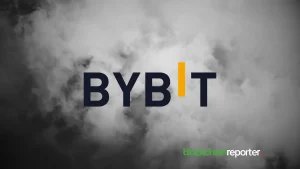
Welcome to this week’s crypto industry review, where we dive into the latest developments and key events shaping the blockchain and digital asset landscape. This week, HashKey Global integrated $ETH and $USDT with Arbitrum for enhanced trading. Secondly, Solana unveiled Blockasset to reward sports fans. Next, Coinbase sued the SEC and FDIC for crypto regulation information while the SEC droped abomb by charging Consensys with unregistered sale of securities. Lastly, and AIOZ Network launched AIOZ Node Version 4.0. Read on to stay informed about these exciting advancements and ongoing challenges in the world of cryptocurrency.
HashKey Global Integrates $ETH and $USDT with Arbitrum for Enhanced Trading
HashKey Global has expanded its offerings this week by integrating Ethereum (ETH) and Tether (USDT) with the Arbitrum network. In this way, it is enhancing transaction flexibility and efficiency. This integration allows users to conduct seamless transactions across Ethereum and Arbitrum networks, benefiting from Arbitrum’s optimized transaction speed and reduced costs. Users can now deposit and withdraw $ETH and $USDT directly between these networks, combining Ethereum’s security with Arbitrum’s lower fees.
Looking ahead, HashKey Global plans to support additional networks, aiming to diversify and enhance its platform’s usability in the evolving crypto market. This forward-thinking approach underscores their commitment to providing robust and versatile trading experiences.
Solana Unveils Blockasset to Reward Sports Fans
Solana has announced Blockasset, a new project aimed at rewarding sports fans for their loyalty to athletes. Revealed on Solana’s X account, Blockasset offers various benefits, including the chance to earn tokenized points through predictions in free-to-play sports games. These points can be used for wagers on sports events, accessing exclusive content, attending live events, and enjoying VIP venue trips. Fans can also use points to participate in athlete training projects.
Solana highlighted that the project enhances experiences for blockchain users and noted MMA fighter Khamzat Chimaev’s collaboration with Blockasset. The project plans to expand its partnerships, including with UFC fights, to offer innovative Web3 experiences to a broader audience.
Coinbase Sues SEC, FDIC for Crypto Regulation Information
Coinbase has recently filed lawsuits against the Securities and Exchange Commission and the Federal Deposit Insurance Corporation to enforce compliance with Freedom of Information Act (FOIA) requests, aiming to clarify crypto regulations. With the help of History Associates Inc., Coinbase filed lawsuits in the U.S. District Court for the District of Columbia. The suits claim federal regulators are obstructing the integration of cryptocurrency into traditional banking. Coinbase’s complaint focuses on FOIA requests to the SEC and FDIC, seeking information on:
Coinbase’s lawsuit against the FDIC targets “pause letters” sent to banks, allegedly discouraging crypto activities as part of “Operation Choke Point 2.0.” These actions, Coinbase argues, isolate the digital-asset industry from necessary banking services.
Coinbase’s legal actions are part of a broader conflict between regulatory bodies and the crypto sector. Despite previous lawsuits and calls for clear regulations, the SEC has not issued specific crypto guidelines, opting instead for broader rules seen as unsuitable for crypto assets. The SEC’s enforcement actions against various crypto platforms, including Coinbase, have sparked criticism from the crypto community, which views the SEC’s approach as “regulation by enforcement.”
SEC Charges Consensys With Unregistered Sale of Securities
In the most prominent and shocking news of the week, the SEC charged Consensys with the unregistered sale of securities and operating as an unregistered broker, focusing on MetaMask Staking and MetaMask Swaps. The SEC claims Consensys collected millions in fees without proper registration, depriving investors of federal protections.
Consensys responded, stating it expected the charges and will continue its lawsuit against the SEC, arguing the agency is overreaching and lacks authority to regulate software interfaces like MetaMask. Consensys seeks a court ruling that the SEC cannot regulate ether, user-controlled software interfaces on Ethereum, or the Ethereum blockchain. This follows President Joe Biden’s May 31 veto of legislation that would have limited the SEC’s authority over the cryptocurrency sector.
AIOZ Network Launches AIOZ Node Version 4.0
AIOZ Network has released AIOZ Node Version 4.0, featuring a new user interface and significant functional improvements. The highlight of this update is the beta transcoding feature, allowing nodes to convert video formats, increasing their utility and earning potential within the network through $AIOZ token incentives. This feature, combined with the upcoming AIOZ W3Stream set for Q3 2024, promises to further enhance node capabilities and convenience.
Existing nodes will automatically update to version 4.0, providing users with the latest features and improvements seamlessly. The update boosts node performance and enables video transcoding, enriching user contributions to the network. AIOZ Network’s updates aim to enhance user efficiency and experience, with video transcoding allowing greater contributions and rewards. Version 4.0 sets the stage for future developments, incorporating AIOZ W3Stream for more complex tasks and higher rewards.
This week’s developments in the crypto world highlight the rapid evolution and ongoing challenges within the industry. HashKey Global’s integration with Arbitrum, Solana’s innovative Blockasset project, and AIOZ Network’s enhanced node capabilities showcase the continuous strides in blockchain technology. Meanwhile, Coinbase’s legal battle with the SEC and FDIC, along with the SEC’s charges against Consensys, underscore the regulatory tensions shaping the sector. Stay tuned with BlockchainReporter for more updates as these stories unfold and continue to influence the dynamic landscape of digital assets.








